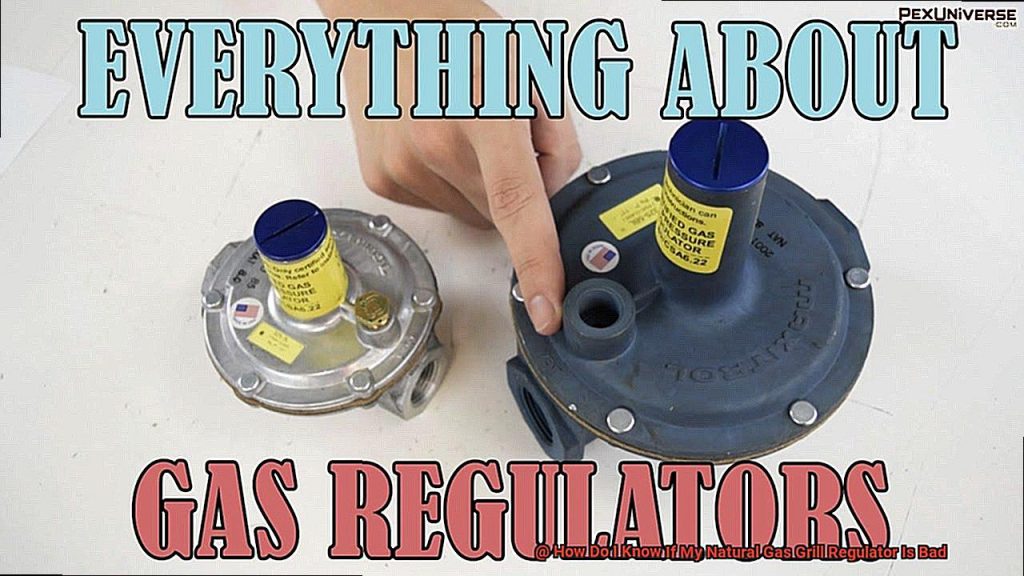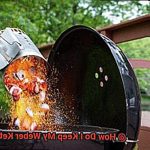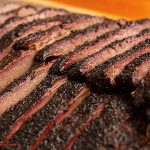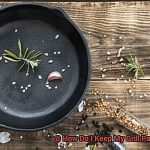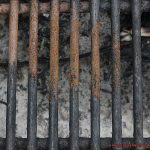Ah, summertime – the perfect season for backyard barbecues with friends and family. But what happens when your natural gas grill decides to act up? You’re left scratching your head, wondering why your burgers won’t sizzle. The culprit could be a bad regulator.
The regulator is the unsung hero of your grill setup, responsible for controlling the flow of gas from your propane tank to your burners. Without it, you’re looking at potentially dangerous problems like gas leaks or even explosions. Yikes.
So how can you tell if your regulator has gone rogue? Keep an eye out for these warning signs: uneven heating, yellow or irregular flames, a lingering smell of gas around the grill, constant ignition issues, and low flames that just won’t get hot enough.
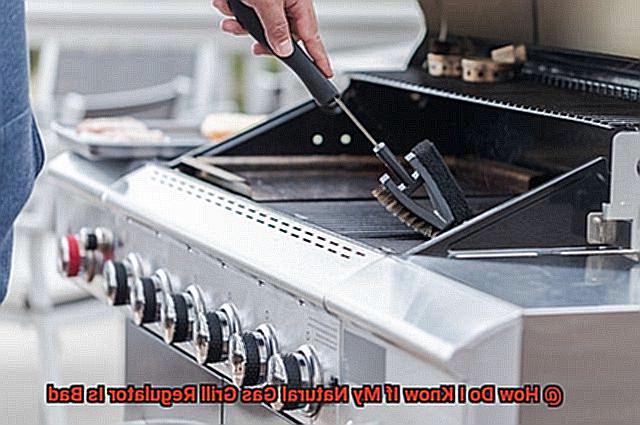
If any of these symptoms sound familiar, call in a pro for a safety check – don’t try to fix it yourself. And if it turns out that you do need a new regulator, make sure to replace it ASAP. Remember: safe grilling equals happy grilling.
Contents
What is a Natural Gas Grill Regulator?
When it comes to grilling, safety should always be a top priority. One important component that helps ensure safe and efficient grilling is the natural gas grill regulator. This device controls the flow of gas from the propane tank or natural gas line to the burners of your grill, reducing the high pressure of the gas to a lower, more manageable pressure that is suitable for use in your grill.
Located on the gas hose that connects your propane tank or natural gas line to your grill, the regulator uses a diaphragm to respond to changes in pressure. If the pressure drops below a certain level, the diaphragm opens up, allowing more gas to flow into your grill. If the pressure rises above a certain level, the diaphragm closes, reducing the flow of gas.
It is important to note that different grills require different regulators. Propane grills require a different regulator than natural gas grills, and there are also different regulators for different sizes of propane tanks. Choosing the right regulator for your grill is essential to ensuring safe and efficient grilling.
If you suspect that your regulator may be faulty, there are a few signs to look out for. Low flame or no flame at all, uneven heat distribution, and a hissing sound coming from the regulator are all indicators that something may be wrong. Additionally, if you smell gas while grilling, it is important to turn off your grill immediately and contact a professional for repair.
Signs of a Bad Regulator
A bad regulator can cause numerous issues that can ruin your grilling experience and, even worse, put you and your loved ones in danger. Therefore, it is essential to be aware of the signs of a bad regulator so that you can avoid potential hazards and ensure that your grill operates at its best.
One of the most apparent signs of a bad regulator is yellow or orange flames instead of blue flames. Blue flames indicate that the gas is burning efficiently, while yellow or orange flames suggest that there is an issue with the gas-to-air ratio. This could be due to a malfunctioning regulator, which is allowing too much or too little gas to flow into the burners. So, if you notice these colors, it’s time to inspect your regulator.
Another sign of a bad regulator is low heat output or slow preheating. If your grill takes longer than usual to heat up or fails to reach the desired temperature, it could be a sign that the regulator is not delivering enough gas to the burners. This could be due to a clogged or damaged regulator, which restricts the flow of gas, resulting in low heat output or slow preheating.
In some cases, a bad regulator can also cause the burner flames to flicker or go out completely. This occurs when the regulator is not providing a consistent flow of gas to the burners, causing them to sputter and struggle to stay lit. If you notice this happening, it is essential to turn off the grill and inspect the regulator for any signs of damage.
Finally, if you smell gas coming from your grill or notice hissing sounds near the regulator, it could be an indication of a leak. A bad regulator can cause gas leaks, which can be dangerous and potentially harmful. In such cases, immediately turn off the grill and seek professional help.
Low Flame or No Flame At All
The most common reason for this frustrating issue is a bad regulator. As an expert on this topic, I can help you understand how to diagnose and fix this problem.
A regulator plays a crucial role in controlling the flow of gas from the propane tank to the burners. A faulty regulator can cause low flame or no flame at all. If you suspect that your regulator is the culprit, there are a few things you can do to confirm it.
Start by performing a simple test. Turn off the gas supply and disconnect the regulator from the propane tank. Reconnect the regulator and turn on the gas supply. If you hear a hissing sound, it could indicate a leak in the regulator or hose.
Another sign of a bad regulator is if you notice a yellow flame instead of a blue flame. This could mean that there is not enough gas flowing to the burners, which can be caused by a faulty regulator.
It’s important to keep in mind that low flame or no flame can also be caused by other issues, such as clogged burners or a low propane tank. However, if you have ruled out these possibilities and still experience low flame or no flame, it may be time to replace your regulator.
To keep your grill in top condition, don’t let a bad regulator ruin your grilling game. Remember to perform regular checks and maintenance on your grill, including checking for signs of a faulty regulator. By doing so, you’ll be able to enjoy perfectly cooked meals every time without any frustration.
Uneven Heat Distribution
Attention grill masters. There’s nothing quite like the sizzle of a perfectly cooked steak or the aroma of a juicy burger on your natural gas grill. But what happens when your culinary masterpiece turns out unevenly cooked, with some parts over-charred and others undercooked? Uneven heat distribution can be a frustrating problem, and it could be caused by a faulty regulator.
First and foremost, achieving even cooking is crucial for any griller. A malfunctioning regulator can cause a reduction in gas flow, leading to hot spots and cold spots across your grill. This makes it harder to achieve evenly cooked food, causing frustration for any griller.
But that’s not all – a bad regulator can pose a safety hazard as well. A gas leak or fire could occur if the regulator is not functioning properly. It’s essential to address this issue promptly to avoid any potential danger.
Luckily, there’s a simple test you can perform to confirm whether your regulator is causing uneven heat distribution. By placing your hand over the grill grates in different areas and feeling for the level of heat, you can identify significant differences in temperature across the grill. Another sign to look out for is soot or discoloration on the grill grates – these marks are often an indication that gas is not being evenly distributed across the grill.
Hissing Sound
Attention grill masters. Are you hearing an unsettling hissing sound coming from your natural gas grill regulator? Don’t ignore it. As an expert on the matter, let me tell you why.
Firstly, a hissing sound is not normal and is a sign of a potentially dangerous situation. It could indicate that there’s a leak or blockage in the system. A leak can lead to a gas buildup in your grill, which could cause an explosion or fire. So, if you suspect a leak, act fast and turn off your grill immediately.
Secondly, debris or dust can accumulate inside the regulator over time, causing it to malfunction. This can lead to uneven heating or poor performance of your grill. So, if you hear a hissing sound, it’s essential to investigate further.
To check if your regulator is faulty, turn off your grill and disconnect the propane tank. Inspect the regulator for any visible signs of damage or wear and tear. If you notice any cracks or holes in the regulator, it’s time to replace it.
You can also perform a soapy water test to check for leaks in the regulator. Mix soap and water in a spray bottle and apply it to the regulator. If you see bubbles forming, this indicates that there is a leak in the system.
Smell of Gas
Grilling is one of the most enjoyable activities during summer, but it’s essential to ensure that your natural gas grill is safe to use. One of the most significant signs that there may be a problem with your grill is the smell of gas. Natural gas has a distinct odor added to it so that people can easily detect if there is a gas leak. The odor is often described as a rotten egg or sulfur smell, and it’s critical to investigate the source of the smell immediately.
Before assuming that the problem lies with the regulator, it’s important to check other potential sources of the gas smell. For instance, if you recently refilled the propane tank, there could be some residual gas odor. Additionally, a faulty gas line or valve could also cause a gas leak. Therefore, it’s crucial to inspect all connections and lines carefully to rule out any other potential causes.
If you have checked all other potential sources and still smell gas around your grill, turn off the gas supply immediately and contact a professional technician to inspect your natural gas grill regulator. A faulty regulator can cause gas leaks, which can be extremely dangerous. Addressing any issues with your regulator promptly could mean the difference between a safe and enjoyable cookout or a dangerous situation that could lead to fires or explosions.
To ensure that your grilling experience is always safe, it’s essential to have your natural gas grill inspected regularly by a professional technician. A regular inspection will help identify any potential problems before they become major safety hazards.
How to Avoid A Malfunctioning Regulator
Grilling is an excellent way to enjoy delicious meals during the summer, but it’s important to ensure that your grill is functioning safely and efficiently. The regulator is a crucial component of your grill that controls the flow of gas from the propane tank to the burners. A malfunctioning regulator can cause decreased flames or even a gas leak, which can be hazardous. In this article, we’ll provide some useful tips on how to avoid a malfunctioning regulator and keep your grilling experience safe and enjoyable.
Regularly Inspect Your Regulator
One of the most effective ways to prevent a malfunctioning regulator is to inspect it regularly for any signs of wear and tear. Look for cracks or corrosion that may indicate damage and replace the regulator immediately if you notice any issues. A damaged regulator can pose serious safety hazards, so it’s essential to address any problems as soon as possible.
Properly Store Your Grill
When you’re not using your grill, it’s essential to store it properly to avoid damage to the regulator and other components. Cover your grill with a grill cover and keep it in a dry, ventilated area away from extreme temperatures and moisture. Exposure to moisture and extreme temperatures can cause damage to the regulator, which can lead to a malfunction.
Maintain Your Grill
To prevent a malfunctioning regulator, it’s crucial to keep your grill clean and free of blockages. Regularly clean the grill and check for any debris or obstructions that may be interfering with the flow of gas. A clogged or dirty grill can cause pressure buildup in the regulator, leading to malfunctioning.
Use High-Quality Gas Hoses and Regulators
Cheap, low-quality hoses and regulators are more prone to damage and wear, which can lead to a malfunction. Invest in high-quality components to ensure the safety and longevity of your grill. High-quality hoses and regulators are less likely to develop cracks or leaks, which can lead to a malfunction.
Follow Manufacturer Instructions
Always follow the manufacturer’s instructions when assembling and using your grill. Improper assembly or usage can lead to a malfunctioning regulator and potentially dangerous situations. The manufacturer’s instructions provide essential information on how to assemble and use your grill safely and effectively.
How to Replace a Bad Regulator
Replacing a bad regulator on your natural gas grill is a relatively simple process that can be done with just a few tools. However, before you get started, it’s important to identify whether or not your regulator is actually the problem. Signs of a bad regulator include low or inconsistent flame output and a hissing sound coming from the gas tank or regulator. If you notice any of these signs, it’s time to replace your regulator.
The first step in replacing your regulator is to turn off the gas supply at the source and disconnect the gas tank from the grill. This ensures that you won’t release any gas while working on your grill. Once this is done, remove the old regulator by unscrewing it from the valve on the gas tank.
After removing the old regulator, inspect it for any signs of damage or wear and tear. If you notice any cracks, dents, or corrosion, it’s important to replace the regulator immediately. Next, purchase a new regulator that is compatible with your grill and has the correct pressure rating for your specific model. You can find this information in your grill’s user manual or by contacting the manufacturer.
Once you have your new regulator, it’s time to attach it to your grill. Begin by attaching the regulator to the gas line and tightening the connection with a wrench. Make sure the connection is snug but not too tight as this can damage the fittings.
After attaching the new regulator, turn on the gas supply and test your grill for any leaks. You can do this by applying soapy water to the connections and watching for bubbles. If you notice any bubbles, turn off the gas supply and tighten the connections until they are snug.
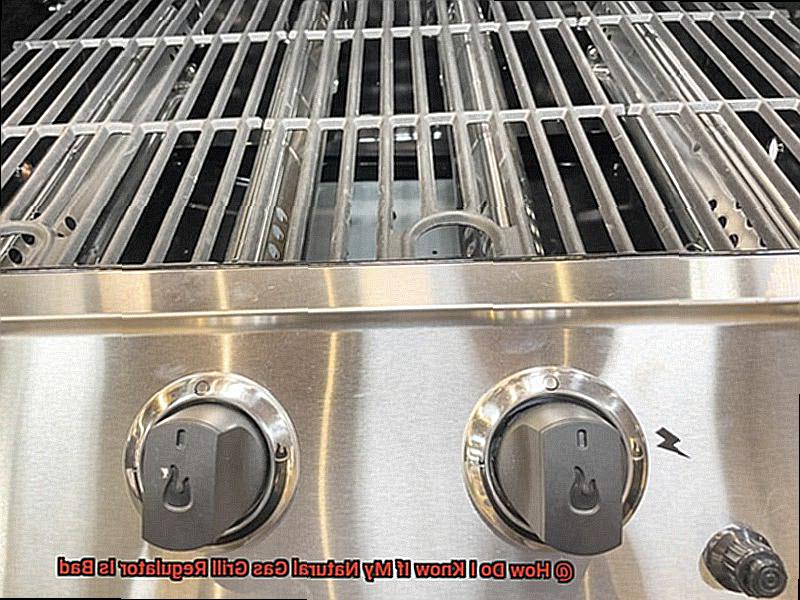
Finally, test your grill by lighting it and checking for proper flame height and heat distribution. If everything looks good, you’re all set. Your natural gas grill should be working like new with its new regulator installed.
The Benefits of Having a Good Regulator
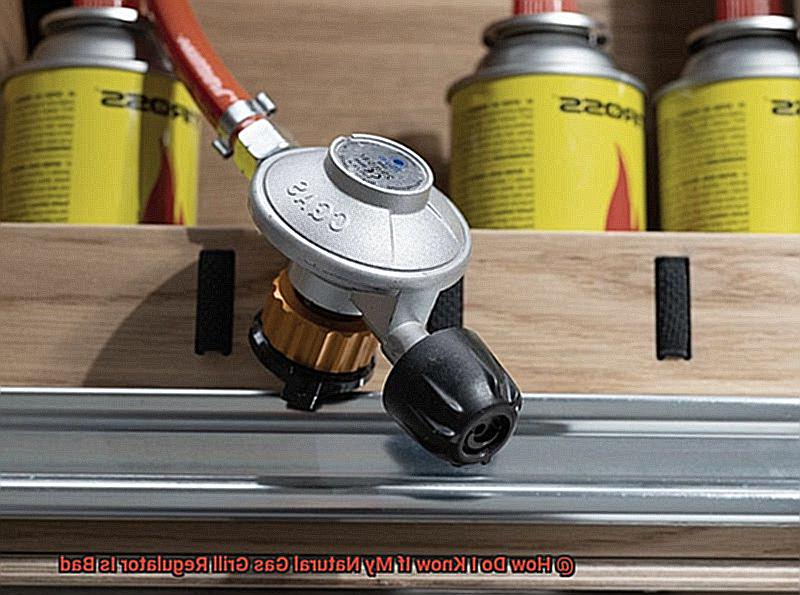
Let’s explore the benefits of having a good regulator for your natural gas grill.
Safety First
The safety of yourself and those around you should always be a top priority when grilling. A good regulator ensures that the gas is flowing safely and at the correct pressure, reducing the risk of accidents from gas leaks that can be caused by a faulty or damaged regulator. This means you can grill with peace of mind knowing that you are protected from potential hazards.
Efficiency Matters
A good regulator also ensures that you are using your propane efficiently, which saves you money in the long run. When the regulator is functioning properly, it controls the flow of gas to the grill at a consistent rate, resulting in even heating and cooking. On the other hand, if the regulator is not working correctly, it can cause uneven heating and result in wasted propane due to longer cook times.
Quality Results Every Time
Investing in a good regulator guarantees consistent food quality every time you grill. The right amount of gas pressure ensures that your grill heats up quickly and maintains a consistent temperature throughout the cooking process, which is essential for evenly cooked food. With a good regulator, you can avoid undercooked or overcooked food and achieve perfectly cooked meals every time.
Common Problems with Natural Gas Grill Regulators
Grilling is an activity that brings joy and flavor to many households, especially during the summer months. However, a natural gas grill regulator that isn’t functioning correctly can quickly put a damper on your plans. So, it’s important to know the common problems associated with your regulator.
The first tell-tale sign that your grill regulator is not performing at its best is a decrease in the flames or heat output. If you notice that your grill is not heating up as quickly or as hot as it used to, it’s a signal that your regulator may not be doing its job properly. Additionally, if you hear a hissing sound coming from the grill or regulator itself, it’s crucial to address the issue immediately. A gas leak or malfunctioning valve could be the cause, both of which pose potential safety hazards.
Uneven heating or frequent flare-ups during grilling could also indicate a faulty regulator. This can cause your food to cook unevenly and even lead to a fire hazard. However, it’s essential to note that these issues may also stem from clogged burners or dirty grates. Therefore, it’s best to consult with a professional if you’re unsure about the source of the problem.
To determine if the regulator needs replacing, you can test it yourself by using a few simple troubleshooting skills. If you’re still uncertain about the problem, don’t hesitate to call in an expert for help.
Troubleshooting Tips for Natural Gas Grill Regulators
When it comes to grilling with natural gas, having a functioning regulator is essential. It regulates the flow of gas from the tank to your grill, ensuring that you have consistent heat and safe grilling experience.
However, if you suspect that your natural gas grill regulator is not working correctly, there are a few things you can do to troubleshoot the issue.
Check for Obstructions
The first step in diagnosing a faulty regulator is to check for obstructions. Debris or insects can get into the regulator and clog it, preventing proper gas flow. Disconnect the regulator and inspect it for any signs of blockages. If you find any, clean the regulator thoroughly and reconnect it to your grill.
Inspect Hoses
The hoses connecting your regulator to your grill can wear out or become damaged over time, causing gas leaks or low pressure. Check for any cracks or signs of wear and tear on the hoses. If you find any damage, replace the hoses immediately to avoid any potential safety hazards.
Test the Regulator
If you suspect that your regulator is faulty, you can test it using a manometer. This device measures gas pressure and can help you determine if the regulator is functioning correctly. If the pressure is too high or too low, it may be time to replace your regulator.
Replace the Regulator
If none of these troubleshooting tips work, it’s time to replace your natural gas grill regulator. It’s important to choose a high-quality replacement that’s compatible with your grill model and gas type. Additionally, regulators have a lifespan of about ten years, so if yours is older than that, it’s probably time for a replacement.
Remember that safety should always be your top priority when dealing with natural gas grills. If you smell gas coming from your grill, turn off the gas supply immediately and check for any leaks around the regulator or hoses connecting it to your grill. A malfunctioning regulator can cause gas to leak out, which is not only dangerous but can also affect the performance of your grill.
ZPNxLNGeIi8″ >
Conclusion
In conclusion, it’s important to keep an eye out for any signs that your natural gas grill regulator may be malfunctioning.
Look for yellow flames, weak heat output, or a hissing sound coming from the regulator. Don’t ignore these warning signals as they could lead to dangerous situations such as gas leaks or even fires.
Remember, safety should always be your top priority when grilling and enjoying outdoor cooking activities.

